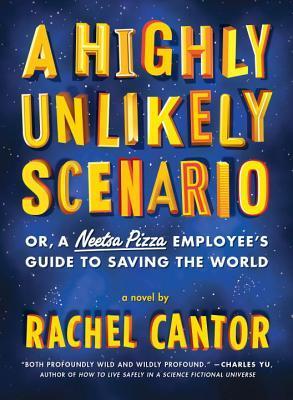What do you think?
Rate this book


249 pages, Paperback
First published January 1, 2014
Nothing is more fun than starting a sentence not knowing how it will end.
—An Interview with the Author, p.244
In the not-too-distant future, the world is ruled not by governments but by fast-food delivery companies. Only one disgruntled employee stands between them and the end of civilization. Okay, one disgruntled employee and a woman who's a librarian. Okay, one disgruntled employee, a woman who's a librarian, and an anarchist book group. Alright (sic), plus a little kid who can travel through time. And maybe one or two other people. But still. That's not much against all that pizza and fried chicken.